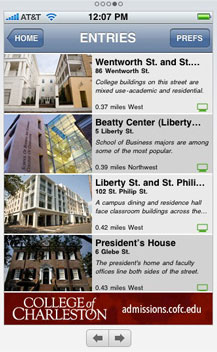Phil McKinney has some interesting thoughts on what skills kids/students need to be learning. He frames the discussion by comparing attitudes of parents in the U.S. versus those in China. Interestingly, Math and Computer Science skills - a key focus in the U.S. - is not high on the priorities for Chinese parents. I think this is probably due to the huge emphasis and investment the Chinese government has on Math, Science and Technology education. As a parent, I don't need to stress these skills at home, if the school system is already delivering them. Instead I can focus on filling in the gaps - the missing skills that my kids need. The question is, "What are these skills?"
The community within which I work - technology education - has become increasingly interested in stressing problem solving skills and more recently, entrepreneurial skills. While problem solving has always been at the core of Engineering, Math, and Computer Science, educators are starting to move away from the traditional approach of "showing" students how to solve problems, and instead focusing on creating an environment where students
explore and
discover how to become better problem solvers. It's not as easy as it sounds, because it requires educators to give up some control in the classroom, step out of their comfort zones, and adopt an approach to teaching and learning that is to most, unfamiliar. One area where I think we're still lacking is in
creative problem solving. We still don't do enough in this country to encourage creativity. I'm not sure creativity is something we can teach, but it's definitely something we need to nurture in our kids.
The importance of entrepreneurial skills - traditionally in the domain of Business and Business Administration - are only now beginning to gain attention. As the economy has struggled and I've considered how to make my students more competitive, I come to believe that every student should be exposed to entrepreneurial skills. Entrepreneurial skills should be taught across the curriculum, so that students in every discipline - art, history, political science, engineering, and computer science - are all taught important entrepreneurial skills. These skills are valuable not only to the sole proprietor or students hoping to begin a startup business, but also students working in virtually any environment. Maybe we call it entrepreneurial literacy and begin to make it a college-wide requirement. There are already a handful of schools doing this - some only in specific programs, but this needs to become a national trend.
Don't even get me started on the last of the skills McKinney addresses - cultural understanding.
US vs China Parents – What skills do children need to be innovative?A recently published report based on the Newsweek-Intel Innovation Survey, shows that US and China parents don’t agree on what skills are critical for children to have when it comes to innovation.

So, what are these critical skills?
Creative Thinking/Problem Solving Skills: Children need to be taught how to think rather than how to memorize. Its not about finding the one right answer for a test but instead the ability to search out all of the possible answer to a question to find the optimal solution. Critical thinking and problem solving skills should not be a stand-alone subject but instead taught across all subjects. For example, thinking through the range of options a given historical figure faced and then determining what would have been the alternative outcomes. Did that person make the right decision?
Entrepreneurial Skills: Its not longer about having deep expertise in a given area but to also have the broad understanding of how a given idea is transformed into an innovation. Understanding the structure, steps and process of running an organization is a fundamental skill that everyone needs to have.
Cultural Understanding: The world is flat and getting flatter. The ability to understand and collaborate with a global ecosystem of employees, partners and customers are table stakes. Without them, your at distinct disadvantage that will become more severe.
What are parents to do? Find opportunities for your kids to gain the experience and skills needed to win the emerging economy. Get them involved in Junior Achievement so they understand business and how to be an entrepreneur. Get them on a FIRST team so they learn how to invent, create and collaborate. Put them in situations where they have to work with others from different cultures such as an international internship.
While we as a society need to change the educational system to ensure we are producing the best employees possible, its the parents that can have the most positive and immediate impact. If we don’t, what jobs will our children be equipped to have when the creative economy takes over?

